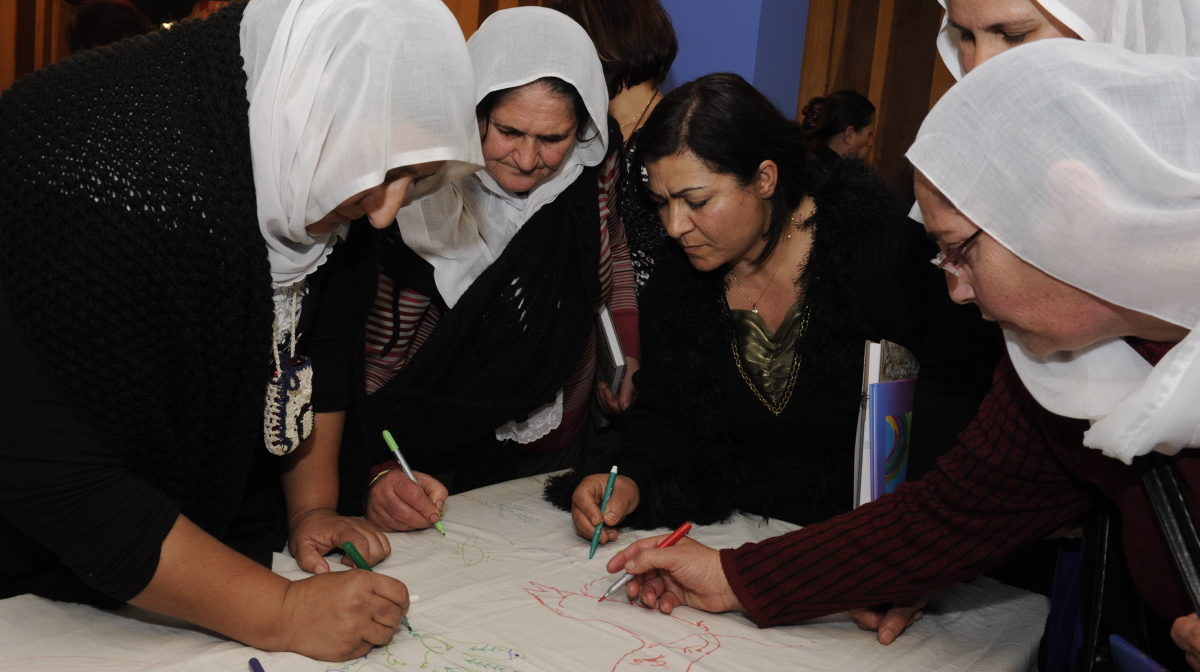Inclusive and Gender-responsive Approaches
Through our collaborative project with UN Women, “Enhancing Women’s Leadership for Sustainable Peace in Fragile Contexts in the MENA Region,” we aim to advance inclusive and gender-responsive approaches to peace and political transition. Inclusive Peace has been involved in extensive research over the course of two years with the aim of exploring effective strategies for enhancing inclusivity and gender-responsiveness in order to foster sustainable and inclusive outcomes.
Ultimately, this research initiative resulted in a series of publications including a research report, a policy brief, and four research papers that comprise this comprehensive collection. A summary of our findings and recommendations is outlined in these publications.
Report,
A Practical Guide to a Gender-Inclusive National Dialogue
This guide is intended to be a practical resource for anyone preparing, advocating for, or participating in an upcoming or ongoing national dialogue, and it seeks to foster understanding of how to make a national dialogue truly inclusive of women and gender.
May 2023Nick Ross,
Report,
Reaching an Inclusive Truce: Gendering Ceasefires
This paper serves as a guide to gender-responsive ceasefire agreements. It explores strategies to enhance women’s influence over ceasefire negotiations and provides both language and an approach to render ceasefire texts and their constituent provisions more gender responsive.
May 2023Kaitlyn Hashem, Alexander Bramble,
Report,
Transfer from Track Two Peacebuilding to Track One Peacemaking: A Focus on Yemen and Syria
This report shares new insights about transfer from track two to track one in Yemen and Syria, and provides a framework that all actors and funders can use to assess and plan for effective transfer.
May 2023Kaitlyn Hashem, Thania Paffenholz,
Policy Paper,
Transfer from Track Two Peacebuilding to Track One Peacemaking: Insights from Yemen and Syria
This policy brief presents findings from a study that explored the process of transfer from informal peacebuilding initiatives (track two) to formal peacemaking processes (track one) in the context of the intra-state wars in Yemen and Syria, including a specific focus on the role of women therein.
May 2023Alexander Bramble,
Report,
Using Temporary Special Measures for Inclusive Processes and Outcomes
This paper explores the capacity of TSMs to render peace negotiation processes more gender inclusive and to promote political, economic, and social gender equality in the post-agreement phase.
May 2023Philip Poppelreuter, Nick Ross, Alexander Bramble,
Report,
Protection of Women Peacebuilders in Conflict and Fragile Settings in the MENA Region
This paper seeks to promote a better understanding of the threats and risks that women peacebuilders in Iraq, Libya, Syria, and Yemen frequently encounter. Also, it aims to sketch support strategies that could be used in the future to enhance the protection of women peacebuilders.
May 2023Philip Poppelreuter,


